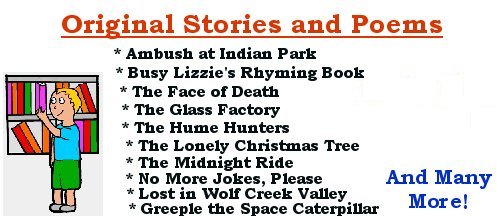
 |
Return to Say-it-in-English Entry Page
Set 1 - Lesson 13 ( Go to the Answer Key )
Lesson 13: More Homonyms - Words that sound the same: TO-TOO-TWO, BARE - BEAR, WRITE - RIGHT and Others.
|
The English language has many sets or groups of words that sound the same but are spelled differently and have different meanings. They are called homonyms. Lesson 4 covered one of those sets: there-their-they're. This lesson will deal with a few more sets. |
Two wives are too many to have.
|
Each of the 'to' words is pronounced exactly the same, but each is spelled differently and has a different meaning.
|
Exercise A: Circle the correct form of 'to' in the following sentences. Write the corrected sentence on the line.
|
1. I need (to, too, two) go (to, too, two) the store (to, too, two) buy (to, too, two) dozen eggs. __________________________________________________________________________ 2. (To, Too, Two) many criminals spend (to, too, two) little time in jail for failing (to, too, two) obey the law. ______________________________________________________________________________ 3. (To, Too, Two) months ago, I drove (to, too, two) Virginia (to, too, two) visit my daughter. ______________________________________________________________________________ 4. George decided the test was (to, too, two) easy for him, but he waited (to, too, two) hours (to, too, two) take it (to, too, two) the teacher's desk. ________________________________________________________________________________ 5. Three drinks is (to, too, two) (to, too, two) many (to, too, two) have (to, too, two) be able (to, too, two) drive safely. ________________________________________________________________________________ |
Homonyms created by contractions:
|
Some of the most commonly misused words are the homonym pairs made up of a possessive pronoun and a contraction.
|
One way to figure out which form to use in a sentence is to separate the contraction into the two words that make it up, then try those words in the sentence. "Be sure to wear (your, you're) hat." Separate you're into you are. How would the sentence sound if you wrote "Be sure to wear you are hat." ? Not very good, is it? That means your is the correct word. Also, the sentence is talking about something that belongs to you - the hat - and your will show that.
Exercise B: Circle the correct word in the parentheses ( ) below. Write the corrected sentence on the line.
|
1. The coach said (its, it's) up to me to decide if (their, they're) going to run or pass the ball. ______________________________________________________________________________ 2. (Their, They're) going to invite me to (their, they're) party so I can learn (whose, who's) getting married next. _________________________________________________________________________________ 3. "Put (your, you're) gloves and boots on if (your, you're) going to play in the snow," Mother said. ________________________________________________________________________________ 4. (Whose, Who's) taking (your, you're) children to the park if (its, it's) raining? _______________________________________________________________________________ 5. The company picked (its, it's) new president by asking the workers who (their, they're) choice would be. _____________________________________________________________________________ |
page break
|
There are too many sets of homonyms in English to deal with them all here. Our suggestion for you is to learn one set at a time as you come across them in your work. Look up the definition of each word and write it in a notebook. Make up sentences for each word and write them in your notebook. Think of a clue or gimmick to help you remember which word is which. |
Examination: Choose the correct word from the ones you have studied in this lesson to complete the following sentences: to, too, two, its, it's, your, you're, their, they're, whose. who's.
|
1. The check arrived _________ late for the family ___________ electricity would be turned off. 2. _________ ________rear tires have __________ little air in them for you __________ drive safely. 3. When dancers go to auditions, _____________ expected to take __________ own shoes with them. 4. __________ __________ easy ___________ blame others for ____________ mistakes. 5. If ____________ finished with this lesson now, you can give it ___________ another person. 6. ___________ my party and I'll cry if I want __________. 7. The umpire cried, "____________ out!" as the catcher tagged the runner. 8. _____________ going for a drink after work and ___________car will we take? 9. ____________ sure they lost ___________ ___________ children in the busy mall. 10. I talked to my neighbors about buying ____________ ____________ dogs, but one is ___________ ugly and the other is ___________ old. |
The End
|
|
Get links to the videos of the songs and lyrics, Wikipedia biographies of the artists, and Then and Now photos.
Practice reading English with the Lyrics to the songs and the histories of the singers and bands at www.mikiemetric.com .